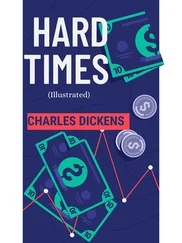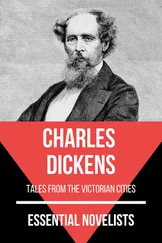Charles Dickens - Hard Times
Здесь есть возможность читать онлайн «Charles Dickens - Hard Times» — ознакомительный отрывок электронной книги совершенно бесплатно, а после прочтения отрывка купить полную версию. В некоторых случаях можно слушать аудио, скачать через торрент в формате fb2 и присутствует краткое содержание. Жанр: Классическая проза, на английском языке. Описание произведения, (предисловие) а так же отзывы посетителей доступны на портале библиотеки ЛибКат.
- Название:Hard Times
- Автор:
- Жанр:
- Год:неизвестен
- ISBN:нет данных
- Рейтинг книги:4 / 5. Голосов: 1
-
Избранное:Добавить в избранное
- Отзывы:
-
Ваша оценка:
- 80
- 1
- 2
- 3
- 4
- 5
Hard Times: краткое содержание, описание и аннотация
Предлагаем к чтению аннотацию, описание, краткое содержание или предисловие (зависит от того, что написал сам автор книги «Hard Times»). Если вы не нашли необходимую информацию о книге — напишите в комментариях, мы постараемся отыскать её.
Hard Times — читать онлайн ознакомительный отрывок
Ниже представлен текст книги, разбитый по страницам. Система сохранения места последней прочитанной страницы, позволяет с удобством читать онлайн бесплатно книгу «Hard Times», без необходимости каждый раз заново искать на чём Вы остановились. Поставьте закладку, и сможете в любой момент перейти на страницу, на которой закончили чтение.
Интервал:
Закладка:
“On the contrary,” returned Mr. Gradgrind. “I came to tell him that her connections made her not an object for the school, and that she must not attend any more. Still, if her father really has left her, without any connivance on her part—Bounderby, let me have a word with you.”
Upon this, Mr. Childers politely betook himself, with his equestrian walk, to the landing outside the door, and there stood stroking his face, and softly whistling. While thus engaged, he overheard such phrases in Mr. Bounderby's voice as “No. I say no. I advise you not. I say by no means.” While, from Mr. Gradgrind, he heard in his much lower tone the words, “But even as an example to Louisa, of what this pursuit which has been the subject of a vulgar curiosity, leads to and ends in. Think of it, Bounderby, in that point of view.”
Meanwhile, the various members of Sleary's company gradually gathered together from the upper regions, where they were quartered, and, from standing about, talking in low voices to one another and to Mr. Childers, gradually insinuated themselves and him into the room. There were two or three handsome young women among them, with their two or three husbands, and their two or three mothers, and their eight or nine little children, who did the fairy business when required. The father of one of the families was in the habit of balancing the father of another of the families on the top of a great pole; the father of a third family often made a pyramid of both those fathers, with Master Kidderminster for the apex, and himself for the base; all the fathers could dance upon rolling casks, stand upon bottles, catch knives and balls, twirl hand-basins, ride upon anything, jump over everything, and stick at nothing. All the mothers could (and did) dance, upon the slack wire and the tight-rope, and perform rapid acts on bare-backed steeds; none of them were at all particular in respect of showing their legs; and one of them, alone in a Greek chariot, drove six in hand into every town they came to. They all assumed to be mighty rakish and knowing, they were not very tidy in their private dresses, they were not at all orderly in their domestic arrangements, and the combined literature of the whole company would have produced but a poor letter on any subject. Yet there was a remarkable gentleness and childishness about these people, a special inaptitude for any kind of sharp practice, and an untiring readiness to help and pity one another, deserving often of as much respect, and always of as much generous construction, as the everyday virtues of any class of people in the world.
Last of all appeared Mr. Sleary: a stout man as already mentioned, with one fixed eye, and one loose eye, a voice (if it can be called so) like the efforts of a broken old pair of bellows, a flabby surface, and a muddled head which was never sober and never drunk.
“Thquire!” said Mr. Sleary, who was troubled with asthma, and whose breath came far too thick and heavy for the letter s, “Your thervant! Thith ith a bad piethe of bithnith, thith ith. You've heard of my Clown and hith dog being thuppothed to have morrithed?”
He addressed Mr. Gradgrind, who answered “Yes.”
“Well, Thquire,” he returned, taking off his hat, and rubbing the lining with his pocket-handkerchief, which he kept inside for the purpose. “Ith it your intenthion to do anything for the poor girl, Thquire?”
“I shall have something to propose to her when she comes back,” said Mr. Gradgrind.
“Glad to hear it, Thquire. Not that I want to get rid of the child, any more than I want to thtand in her way. I'm willing to take her prentith, though at her age ith late. My voithe ith a little huthky, Thquire, and not eathy heard by them ath don't know me; but if you'd been chilled and heated, heated and chilled, chilled and heated in the ring when you wath young, ath often ath I have been, your voithe wouldn't have lathted out, Thquire, no more than mine.”
“I dare say not,” said Mr. Gradgrind.
“What thall it be, Thquire, while you wait? Thall it be Therry? Give it a name, Thquire!” said Mr. Sleary, with hospitable ease.
“Nothing for me, I thank you,” said Mr. Gradgrind.
“Don't thay nothing, Thquire. What doth your friend thay? If you haven't took your feed yet, have a glath of bitterth.”
Here his daughter Josephine—a pretty fair-haired girl of eighteen, who had been tied on a horse at two years old, and had made a will at twelve, which she always carried about with her, expressive of her dying desire to be drawn to the grave by the two piebald ponies—cried, “Father, hush! she has come back!” Then came Sissy Jupe, running into the room as she had run out of it. And when she saw them all assembled, and saw their looks, and saw no father there, she broke into a most deplorable cry, and took refuge on the bosom of the most accomplished tight-rope lady (herself in the family-way), who knelt down on the floor to nurse her, and to weep over her.
“Ith an internal thame, upon my thoul it ith,” said Sleary.
“O my dear father, my good kind father, where are you gone? You are gone to try to do me some good, I know! You are gone away for my sake, I am sure! And how miserable and helpless you will be without me, poor, poor father, until you come back!” It was so pathetic to hear her saying many things of this kind, with her face turned upward, and her arms stretched out as if she were trying to stop his departing shadow and embrace it, that no one spoke a word until Mr. Bounderby (growing impatient) took the case in hand.
“Now, good people all,” said he, “this is wanton waste of time. Let the girl understand the fact. Let her take it from me, if you like, who have been run away from, myself. Here, what's your name! Your father has absconded—deserted you—and you mustn't expect to see him again as long as you live.”
They cared so little for plain Fact, these people, and were in that advanced state of degeneracy on the subject, that instead of being impressed by the speaker's strong common sense, they took it in extraordinary dudgeon. The men muttered “Shame!” and the women “Brute!” and Sleary, in some haste, communicated the following hint, apart to Mr. Bounderby.
“I tell you what, Thquire. To thpeak plain to you, my opinion ith that you had better cut it thort, and drop it. They're a very good natur'd people, my people, but they're accuthtomed to be quick in their movementh; and if you don't act upon my advithe, I'm damned if I don't believe they'll pith you out o” winder.”
Mr. Bounderby being restrained by this mild suggestion, Mr. Gradgrind found an opening for his eminently practical exposition of the subject.
“It is of no moment,” said he, “whether this person is to be expected back at any time, or the contrary. He is gone away, and there is no present expectation of his return. That, I believe, is agreed on all hands.”
“Thath agreed, Thquire. Thick to that!” From Sleary.
“Well then. I, who came here to inform the father of the poor girl, Jupe, that she could not be received at the school any more, in consequence of there being practical objections, into which I need not enter, to the reception there of the children of persons so employed, am prepared in these altered circumstances to make a proposal. I am willing to take charge of you, Jupe, and to educate you, and provide for you. The only condition (over and above your good behaviour) I make is, that you decide now, at once, whether to accompany me or remain here. Also, that if you accompany me now, it is understood that you communicate no more with any of your friends who are here present. These observations comprise the whole of the case.”
“At the thame time,” said Sleary, “I mutht put in my word, Thquire, tho that both thides of the banner may be equally theen. If you like, Thethilia, to be prentitht, you know the natur of the work and you know your companionth. Emma Gordon, in whothe lap you're a lying at prethent, would be a mother to you, and Joth'phine would be a thithter to you. I don't pretend to be of the angel breed myself, and I don't thay but what, when you mith'd your tip, you'd find me cut up rough, and thwear an oath or two at you. But what I thay, Thquire, ith, that good tempered or bad tempered, I never did a horthe a injury yet, no more than thwearing at him went, and that I don't expect I thall begin otherwithe at my time of life, with a rider. I never wath much of a Cackler, Thquire, and I have thed my thay.”
Читать дальшеИнтервал:
Закладка:
Похожие книги на «Hard Times»
Представляем Вашему вниманию похожие книги на «Hard Times» списком для выбора. Мы отобрали схожую по названию и смыслу литературу в надежде предоставить читателям больше вариантов отыскать новые, интересные, ещё непрочитанные произведения.
Обсуждение, отзывы о книге «Hard Times» и просто собственные мнения читателей. Оставьте ваши комментарии, напишите, что Вы думаете о произведении, его смысле или главных героях. Укажите что конкретно понравилось, а что нет, и почему Вы так считаете.












